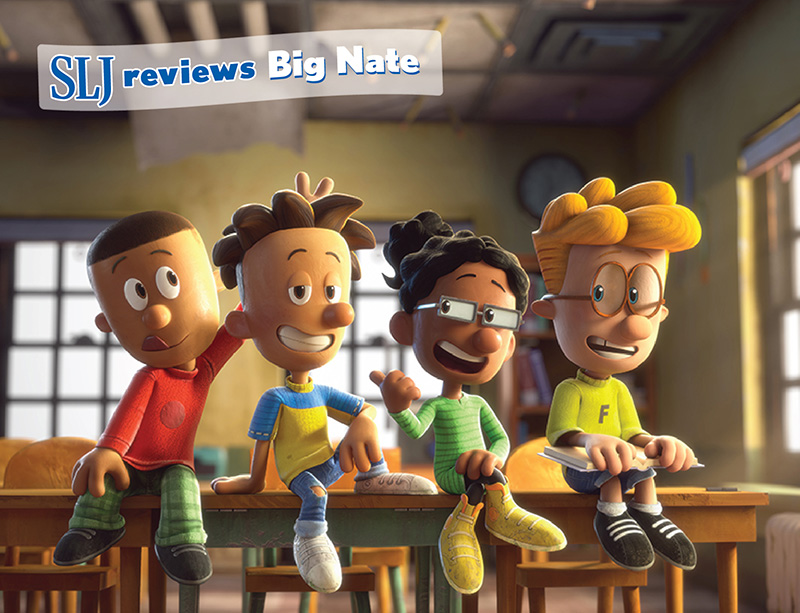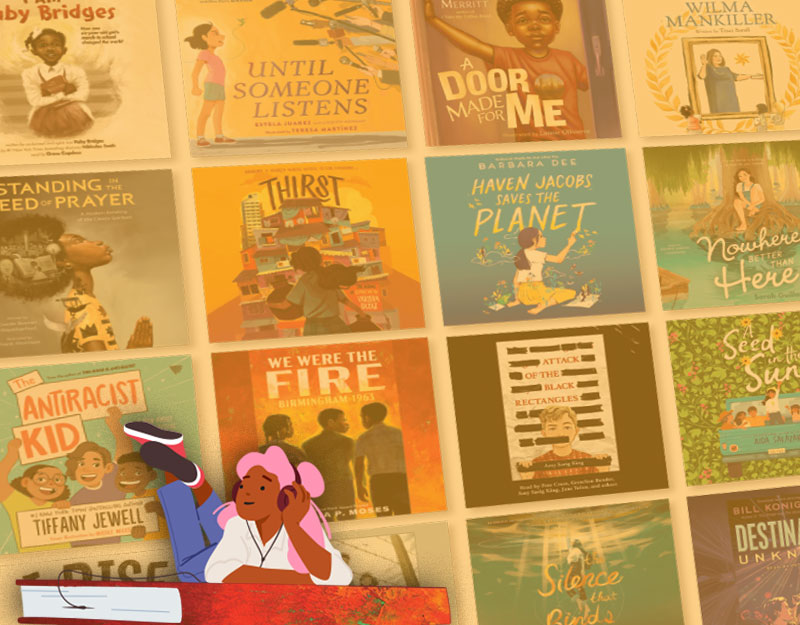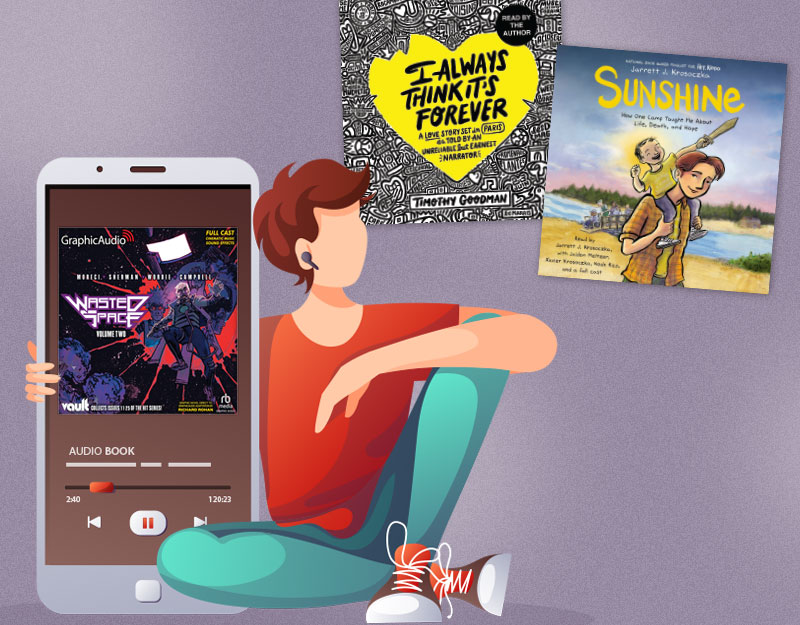Writing for the Least Boring People She Knows: Annie Barrows Talks Iggy

Saints make for boring books. Ask anyone. Sure Little Goody Two-Shoes might have been one of the earliest books for children, but unless you’re really into moral instruction and characters with names like “Margaret Meanwell”, I doubt it’s your cup of tea. If, on the other hand, you’re into amusing characters that get themselves into magnificent, hilarious trouble, I’d like you to join me over here instead.
You see, today I’ve a chance to interview one Annie Barrows. Name ringing any bells? Perhaps the series “Ivy & Bean” might jog your memory. Ah, yes. THAT Annie Barrows! Well, like many authors she’s gone and followed up her first series with a new one. The trick is, her new series is completely unrelated to the first.
ADVERTISEMENT
ADVERTISEMENT
We have two books here to discuss. The first, The Best of Iggy, was released in January and is described in this manner:
“Meet 9-year-old Iggy Frangi. He’s not a bad kid, he’s really not. Okay, so he’s done a few (a few is anything up to 100) bad things. And okay, he’s not very sorry about most of them. People make a big deal about nothing. What’s a little pancake here and there? Is that something to get mad about? Iggy doesn’t think so. No one got hurt, so there’s no problem. No one got hurt except for that one time, that one time when the Best Idea Ever turned into the Worst Idea of All Time.
Iggy is sorry he did it. He is really, really, really sorry.
“For what?” you might ask. “What did he do?”
Well, you’ll have to read the book to find out.”
And now, this very month, as of YESTERDAY in fact, there is a second Iggy title. Called Iggy Is Better Than Ever, it goes in a slightly different direction:
“One thing led to another . . .
Have you ever heard those words? Sometimes it means “Things got better.” That’s not what it means in this book. In this book, Iggy gets an idea–a perfectly fine idea–and then, unfortunately, the principal shows up, and then, even more unfortunately, there’s an incident with a basketball, and then, before you know it, Iggy’s flying through the air.
How did it all happen? It’s really hard to explain. You’d better read the book.”
Folks, please join me in welcoming Annie Barrows to the blog today:
Betsy Bird: Ms. Barrows you occupy such a specific strata of children’s books. It’s the area occupied by books by folks like Beverly Cleary and younger Judy Blume. The best way one could describe it would be as the early chapter book level but not so young that it would be perceived as “babyish” by some kids. I know from experience that very few authors write these types of books (and even fewer are good) so just to start us out here, what’s been the allure of this reading level, would you say?

Annie Barrows: I write for this age group because they are the least boring people I know. To my mind, seven is the pinnacle of life. Eight is good, nine is pretty good, ten has its recompenses, and everything after that is tinged with the gloom of impending adulthood. Between seven and nine, kids are competent enough to have some agency and yet they still have access to the realm of possibility. They aren’t prisoners of category or received information, which means they’re capable of original ideas. Plus, they’re know how to have fun. I’m jealous, so I write about them.
BB: Smart move. The Ivy and Bean books, for which you are so justifiably well-known, are brilliant little pieces of art. They are also girls. Iggy has many charms, but a girl he is not. Why the switcheroo to another gender?
AB: I’d love to say that gender is entirely immaterial to character. I’d love to say that I flipped a coin, and it came down tails, so I made Iggy a guy. Too bad that would be a lie. When I first began to write about, um, that thing that happens with the trampoline and, uh, that other thing that happens on the roof of the shed, I thought I was writing a new Ivy and Bean book. But it didn’t work, and it didn’t work because I have never met a girl-human who lacked impulse-control to that degree. On the other hand, in the last thirteen years of touring the classrooms and libraries of America with the Ivy and Bean books, I have met thousands of wildly fun boy-humans who wouldn’t think twice about the trampoline, the roof of the shed, or even, yikes, the thing with the skateboard.
BB: Please do not make me think again about the thing with the skateboard. Now Iggy’s just fascinating because you took some risks with the character. He isn’t quite as vile as a Greg Heffley, say, but neither is he an innocent bystander in his own destruction. Iggy gets what’s coming to him without exception. He’s the kind of kid that just can’t get away with anything. Where on earth did you conceive of him? Did he come fully formed or did you have to tinker with his personality?

AB: Gee. Vile? I think Iggy’s wonderful. I love Iggy. Obviously, he causes trouble, both for himself and other people, but to me, the single most important moral factor is intention. And Iggy doesn’t intend evil. He doesn’t plan the things he does; he just does them. He doesn’t glory in the outcome, either; he’s usually just as surprised by what he’s wrought as everyone else is. Sometimes he’s regretful and sometimes he’s not, but he never sets out to do wrong. So is Iggy bad? I think it’s more complicated than that, and this is the point I’m trying to make.
These stories were developed in reaction to the truly scary spread of sledgehammer judgment and black-and-white thinking that has pervaded American society in the last four years. Across the board, nuance and complexity have been abandoned in favor of simplistic categories: you’re either good or you’re bad, either in or out, only lovable or only hate-able. I’ve been watching this reductive thinking infect children’s literature in various ways in recent years—for example, we’ve now reached a point where it seems virtue can only be established by suffering—and I believe that while such literature intends to be instructional, it ends up being punitive at best and Inquisitorial at worst.
Iggy is my attempt at an antidote. It was easy, really, because Iggys are everywhere—they’re the kids who will do anything for a joke, who will lick the goldfish on a dare, who will pretend to fall into the baboon pit at the zoo until they actually do fall into the baboon pit. They intend only to have fun, they carpe the diem, and they drive their grownups nuts. They aren’t sensible and mature and quiet, but why should they be? They’re kids! To categorize all these children as Bad and Only Bad would be regressive, and to depict their punishment as desirable and necessary would be a return to the idea of children’s books as a means of control. Down with that! Up with Iggy!
BB: Hear hear! Now, the trickiest part of making a flawed hero is endowing that character with enough sympathetic points that you find yourself rooting for him, even as you acknowledge the righteousness of his comeuppance. How do you make an Iggy a likable Iggy and not merely an annoying Iggy?

AB: Weelllll, what annoys a grownup is not usually what annoys a kid, so I’m dubious about the proposition that Iggy’s bad behavior will annoy his intended readers. He will probably annoy some grownups, but grownups are delicate and easily upset. One of the main reasons I wrote Iggy was family parties, specifically, family parties at which all the darling little cousins and nieces and nephews gather round my husband and beg him to tell about the horrifying things he did as a kid— “We want the Matches Club!” they scream. “We want the Bird Poop Incident!” Or The Staple or Poor Miss Jubileer or The Fishing Line or whatever—to which they listen with joy on their sweet little faces. They laugh and laugh. They don’t seem annoyed. But after about thirty years of watching my husband get all this attention, I was annoyed. So I stole his stories and wrote Iggy.
BB: I love the three-part structure of the book. I already have visions of creative writing teachers for kids around the country breaking this book down with their students to show “rising action”, “climax”, etc. This structure also seems to differ from the Ivy & Bean format. Which came first, the plot or this structure?
AB: The three-part structure grew naturally from the voice of the retrospective narrator. Because the narrator is both an apologist for Iggy and a judge of his actions, it’s necessary for him/her to be existing in a period later than the action of the story, which allowed me a much more orchestral management of the structure than I get with Ivy and Bean, where the narrator is almost transparent and has little organizing capacity. With Iggy, the narrator has a point to make, and the three parts are illustrations of his/her argument, so the structure is almost inherent in the narrative gambit.
BB: Have you ever known/been an Iggy?
ADVERTISEMENT
ADVERTISEMENT
AB: I was not an Iggy. I was good and sweet and well-behaved, and all grownups loved me. I never did anything wrong. “Why can’t you be more like that nice Annie Barrows?” said all the other parents to their children. “If only Annie Barrows would stay in my class forever,” wept my teachers each June. “Tweet, tweet,” sang the little birds as they circled my head.
I have paid off everyone with opposing evidence, too, so you can just forget about that.
BB: Durn.
So I know that a second Iggy has just come out, but will we see more of him after that? What’s in store for this guy?
AB: The second book in the series, Iggy Is Better Than Ever, comes out this month. In my completely impartial opinion, it’s one of the two funniest books I’ve ever written. Plus, it’s got an incredible event in it. The event is green. That’s all I’m going to say.
Iggy the Third will be coming next spring, and the fourth book is beginning to take shape in my brain. And after that? Iggy and I have great plans . . .
A toast to Ms. Barrows for answering my questions (she’s entirely correct – there is nothing vile about Iggy) and to Olivia Russo of Penguin Young Readers for allowing me to pepper the woman with my thoughts in the first place.
Filed under: Interviews
About Betsy Bird
Betsy Bird is currently the Collection Development Manager of the Evanston Public Library system and a former Materials Specialist for New York Public Library. She has served on Newbery, written for Horn Book, and has done other lovely little things that she'd love to tell you about but that she's sure you'd find more interesting to hear of in person. Her opinions are her own and do not reflect those of EPL, SLJ, or any of the other acronyms you might be able to name. Follow her on Twitter: @fuseeight.
ADVERTISEMENT
ADVERTISEMENT
SLJ Blog Network
Happy Poem in Your Pocket Day!
Family Style: Memories of an American from Vietnam | Review
Parsing Religion in Public Schools
ADVERTISEMENT







